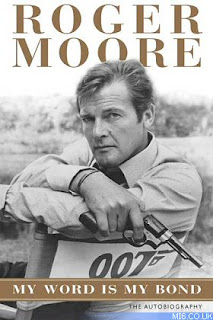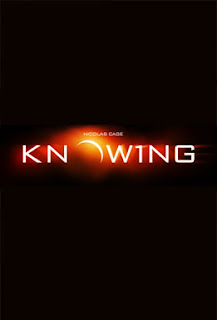
The Rescue and The Romans are an interesting pair of stories to release together on DVD (or, more accurately, in a boxed set), but strangely appropriate, and not just because they follow each other consecutively in original broadcast. Obviously these are the first two stories of Vicki, and show her becoming a member of the TARDIS team, but more interestingly the stories are actually poles apart in ideology and design and yet are written by the outgoing and incoming story editors of the series respectively.
The Rescue is, on the audio commentary, described as a whodunnit with one suspect, but that is grossly underplaying the story and not terribly fair. While there is an element of the whodunnit about it, a better description would be a what-is-it, and this refers to Koquillion, the monster at the heart of the story. Doctor Who often plays with the expectations people have on it (in The Hand Of Fear, Sarah Jane wonders if the gravel pit they have arrived in is another alien planet), and it's interesting that at the start of the second year of filming (which The Rescue is), the series already starts doing it. Koquillion is, of course, a man in a costume, and any fan of the series is automatically programmed to accept that this is a monster, particularly the forgiving audiences of the 1960s. When it turns out to be, literally a man in a suit, the audience would no doubt have been surprised, its expectations turned upside down.
Of course, as previously mentioned, this is the first appearance of Maureen O'Brien as vicki, the replacement for Susan who had left in the previous serial. The production team clearly weren't that keen to stray too far from design, and little orphan Annie, I mean Tanni...I mean Vicki (!) is a girl from the future who, despite being the link for the younger audience, is out of touch with today's world. However, whereas Carole Ann Ford delivered a performance that was just the wrong side of normal, Maureen O'Brien grounds Vicki very much as an everyday young girl. As Vicki is essentially Susan in all but name, it is to O'Brien's credit that her performance makes the character vastly different to her predecessor, and a lot more human - which is entirely appropriate as she is.
The Romans also turns expectations upside down - following on from the serious futuristic story of The Rescue comes an historical that, rather surprisingly, plays it for laughs. This story highlights the difference between David Whitaker's approach to Doctor Who, and his successor as story editor, Dennis Spooner's. Whitaker wrote The Rescue, which was commissioned by Spooner, but for The Romans we have the reverse - Whitaker commissioning Spooner. Whereas Whitaker liked his historical stories to be about the times they arrived in, Spooner preferred history to be a backdrop to the story of people there, including some great historical figure, this time in the form of Nero. Once you have Nero in Rome, there's a certain inevitability about where the story is going to go, and so there's little surprise to see Nero playing his lyre as Rome burns around him.
Where this story works so well is in the cleverness of the script. Often described as a comedy, the actual high comedy doesn't really come into play until Episode 3, where Nero turns into Benny Hill. But throughout the rest of the story there is comedy to be found in some sparkling dialogue and witty scenes. William Hartnell particularly seems to enjoy this, stealing every scene he is in and, according to the production subtitles, improvising his own comedy into the story - notably in a wonderful scene set in the sauna where the Doctor is on the verge of stabbing Nero with a sword everytime he turns around. The banquet scene in Episode 3 is, for me, the greatest moment in the entire story, as the Doctor "Emporer's New Clothes" his way through a lyre performance by not actually playing anything. Derek Francis delivers a line with wonderful timing, but the icing of the cake comes when, though being interrupted and applauded, the Doctor pretends to finish his imaginary piece. Its a golden moment, and, despite the best efforts of the rest of the cast - and they really do put in brilliant performances - shows that this is really Hartnell's show no matter what.
Both stories have retrospective documentaries on them, which are quite enlightening, although The Rescue's is the only contribution by Maureen O'Brien to the extras, which seems a bit of a waste in a boxed set that is essentially about vicki. The Romans, rather uniquely, also sees other actors who have played Nero over the years - such as Anthony Andrews and Christopher Biggins - chat about the character. The audio commentaries, moderated by comedian Toby Hadoke (the man who wrote and performed the play "Moths Ate My Doctor Who Scarf") all feature essentially the same lineup - William Russell, Christopher Barry, Raymond Cusick and, in the Romans, Barry Jackson and Nick Evans. In The Rescue, Barry and Cusick spend most of the time moaning about how unimpressed they are with the new series, but in The Romans they talk a little more about the story, but the majority of the anecdotes are recounted both here and in the retro-docos.
Both discs have photo galleries and production subtitles, but The Romans also has a little segment where Christopher Barry displays Raymond Cusick's cardboard model of the set, and then proceeds to bore us to tears explaining the camera moves. The other two documentaries are infinitely more interesting - one focussing on Dennis Spooner and his work both on Doctor and on television in general (wonderfully Brian Clemens is interviewed for this), while the other doco sees various actors discuss the Who girls of the 1960s. This latter documentary is fabulous, but has some strange choice of interviews - Maureen O'Brien is not present at all to discuss Vicki, but Jean Marsh is on hand to talk about Sara, whose status as a companion - as Marsh points out - is highly debatable. To cap it all off, a Blue Peter segment about how Romans eat is also included.
The second season of Doctor Who was determined to shake up the format a little and these two stories highlight that. The good thing about them, though, is that they are both very entertaining stories and well worth the buy.





